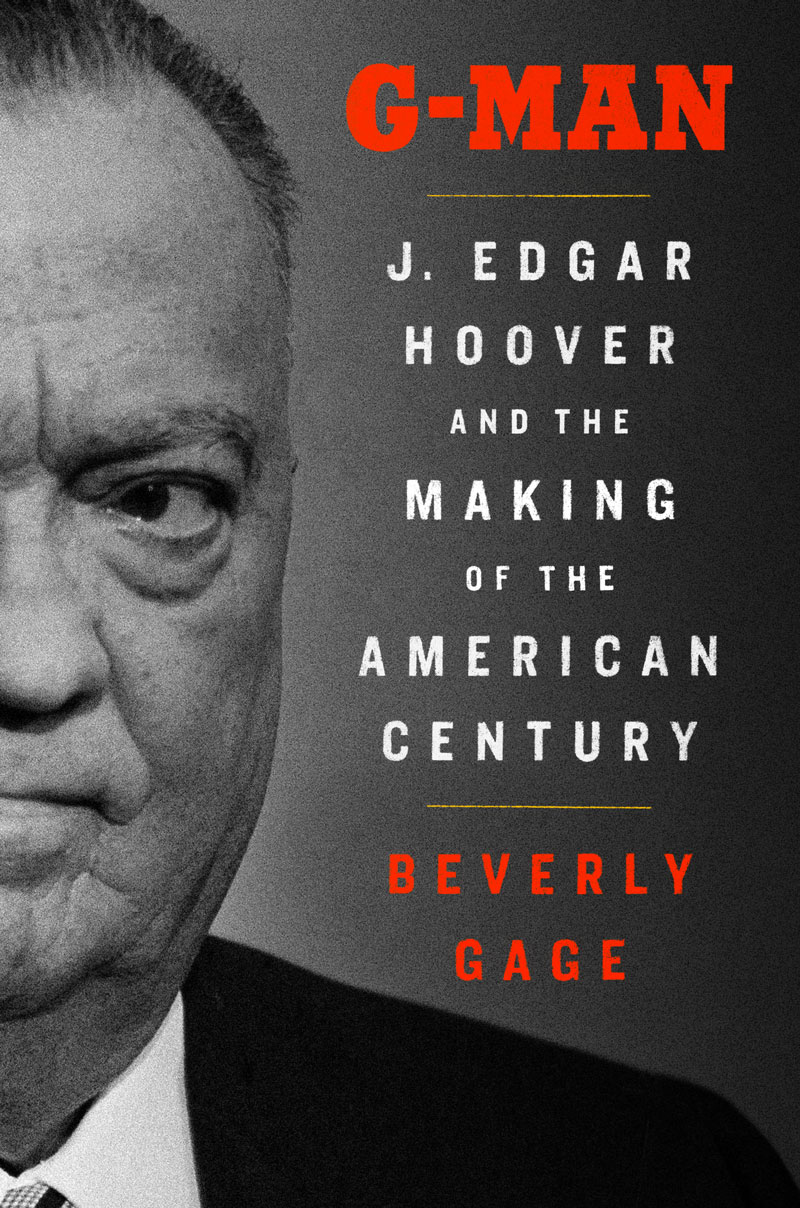In her towering biography of one of the most powerful unelected officials in American history, Beverly Gage tells the story of the quintessential Government Man, John Edgar Hoover. He reigned over the F.B.I. from 1924-1972, fashioning it in his image. While his name may conjure associations of malfeasance and destruction, Yale historian Gage shows that Hoover’s life and work very much reflected the arc of public opinion in the 20th century.
“We cannot know our own story without understanding his, in all its high aspirations and terrible cruelty, and in its many human contradictions,” writes Gage. She has miraculously untangled those contradictions and our own paradoxical national story involving American anxieties over security, masculinity, and race in her astounding biography.
Gage has written a big ambitious book. G-Man (Viking) is written with propulsive energy and elan, recounting major events—from Palmer Raids to the New Deal’s “War on Crime” through WWII, the Hiss and Rosenberg cases, protests over civil rights and the Vietnam War, to the assassinations of Martin Luther King, Jr., and President John Kennedy. Gage weaves revelations from new archival material with her nuanced historical interpretations into a suspenseful biography.
Washington D.C., where Hoover lived his entire life, is essential to Gage’s deep understanding of Hoover. “His biography,” she writes, “is also the story of his hometown as it transformed from a sleepy parochial city into a center of global power.” Gage also understands power, which, as she writes, “does not simply arrive. It has to be created, policy by policy, law by law, step by excruciating step.”
Hoover spoke publicly of an idyllic childhood. Gage, however, captures parents struggling after the death of their 3-year-old daughter from diphtheria. Hoover’s gentle, depressed father was once institutionalized in a sanitarium. An aunt was murdered. Mental illness and suicide had run in the family and hung like a cloud over the household. This was the background of Hoover’s internal life.
The class valedictorian Hoover attended George Washington Law School and quicky joined the southern fraternity Kappa Alpha which, Gage explains, became his “chief source of sustenance and friendship.” The organization included southern congressmen and senators who shaped Hoover’s values, especially about race, segregation, and the honor of the Old South mythology.
Kappa Alpha was more than a networking experience. In pointing to its centrality in Hoover’s life, Gage contends that this experience shaped his world view. “It would be hard to overstate the importance of such connections for Hoover’s future career,” she writes. “For Hoover,” Gage explains, “Kappa Alpha would become a way of life, a touchstone for the FBI’s internal values, and a shorthand way to measure the character, the loyalty and political sympathies of the men he hired to work for him.”
Many George Washington University Kappa Alpha men were recruited to the FBI, including Clyde Tolson. Soon it became clear that Hoover and Tolson not only worked together but accompanied each other to nightclubs, racetracks, and White House receptions, and on vacations. “They were,” Gage writes, “in essence a couple, though almost nobody—especially Hoover—referred to them that way.” She adds that during the anti-gay Lavender Scare in the 1950’s, they were more careful about their appearances together. Hoover participated in the Lavender Scare, but as Gage makes clear, he was far more zealous about the Rosenbergs and Communists.
In the end, Hoover and Tolson were buried just a few yards apart from each other and their relationship remains a matter of speculation.
Gage chronicles the many abuses of power committed by the FBI during Hoover’s reign, details the Bureau’s wiretapping and harassment of Martin Luther King, Jr., and points out that Hoover was no lone ranger and was operating with public opinion—no matter how wrong-headed it seems—on his side. As Gage articulates so beautifully: “To look at him is also to look at ourselves, at what America valued and fought over during those years, what we tolerated and what we refused to see.”



